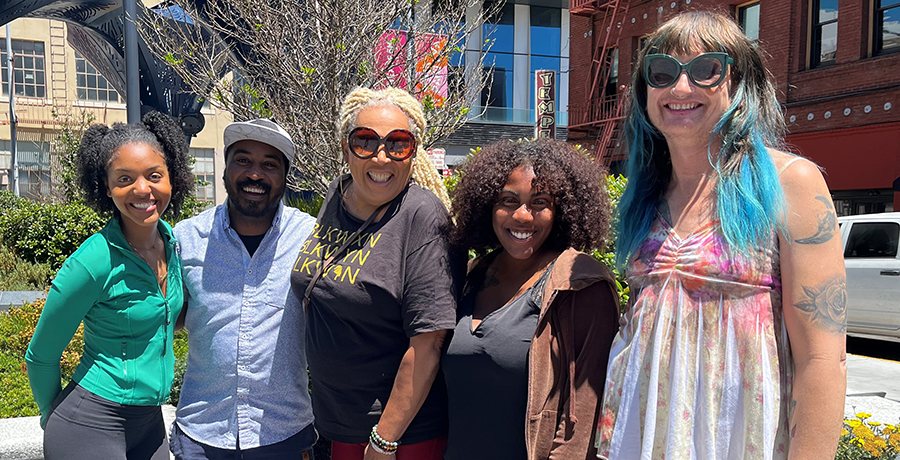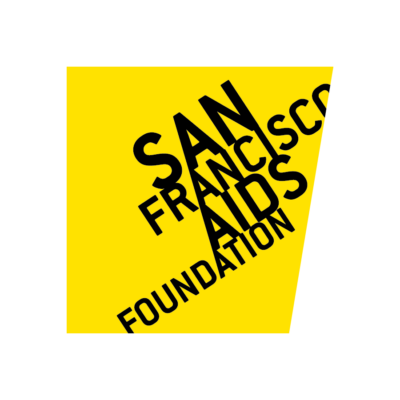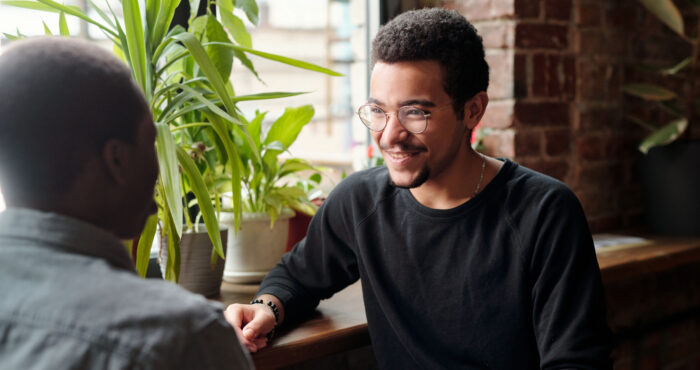Training the next generation in community health

Careers in community health don’t always start with a four-year college degree. Oftentimes, the “lived experiences” of our client-facing staff are what bring these individuals to this work and give them the expertise and perspective needed for the work they do.
LGBTQ clinicians bring queer cultural competency to our Magnet clinic in the Castro. Staff with a history of substance use and use of harm reduction teach community members how to administer the overdose prevention medication Narcan and lead substance use counseling services. Long-term survivors lead our HIV and aging community services. For many of us, this work is personal.
The benefits are clear: clients, participants, and communities we serve are more likely to find a sense of belonging, stay engaged in services, and receive excellent care when service providers have a deep understanding of those we serve. And it’s important for the community to “see themselves reflected” in the staff from the front door to the counseling rooms.
That’s part of why SFAF’s Black Health Clinical Internship program is training up the next generation of service providers–welcoming and giving a leg up to interns coming from the very communities we serve.
“We do try to find folks with lived experience,” explained Traye Turner, manager of the program. “This program is for people who are living in and part of the community–that’s really important. And we give people training so that they get a lot of varied experience working in community health. We support people in the ways they want to grow.”
The training program, which lasts for about 4 months, provides a concrete set of training and skill development opportunities that includes a week-long training in HIV and STI test counseling from the San Francisco Department of Public Health. In addition, the interns work alongside SFAF staff across sexual health, lab, service navigation, aging services, TransLife, substance use counseling, and Black Health departments.
“You’re going to get some growth out of this program–whether it’s personal, professional, or both,” explained Alyssia Lailauni, who graduated from the program in February of 2024.
Lailauni, who moved to the Bay Area only two years ago, joined the program as a way to start a career in public health. She’s now employed full time as health educator with SFAF’s syringe access services team, and is interested in pursuing a career in counseling.
“I’m a very social person, so I took this opportunity to meet different people in different departments at SFAF, and to really explore as much as I could about public health work,” she said. “When I first started the program, I had never even heard of [the overdose reversal medication] Narcan or harm reduction, for example. And now I’m teaching other people how to use it.”
“It’s been very rewarding,” said Joy Bastet, a current intern. “The program opens your mind up to possibilities. I was convinced that I wanted to do the phlebotomy internship, but the more I got involved with facing clients a the program level, like with Stonewall and TransLife, and having the experience of facing clients who are literally – me – I find that I’m more interested in program work.”
Bastet is graduating from the program soon, and is currently contemplating job opportunities to pursue.
“I’ve appreciated that we have been able to spend time with so many different teams doing different things,” said Bastet. “Staff have made time for the interns, and that’s so refreshing. The foundation has opened its doors, and invited the interns to be curious–to see where we fit. To ask, not only if community health is a fit. But within community health–where do you really see yourself? If someone were to ask me about the things I’ve done in my life that have allowed me to grow in ways that I didn’t expect, this jumps pretty close to the top of the list.”










